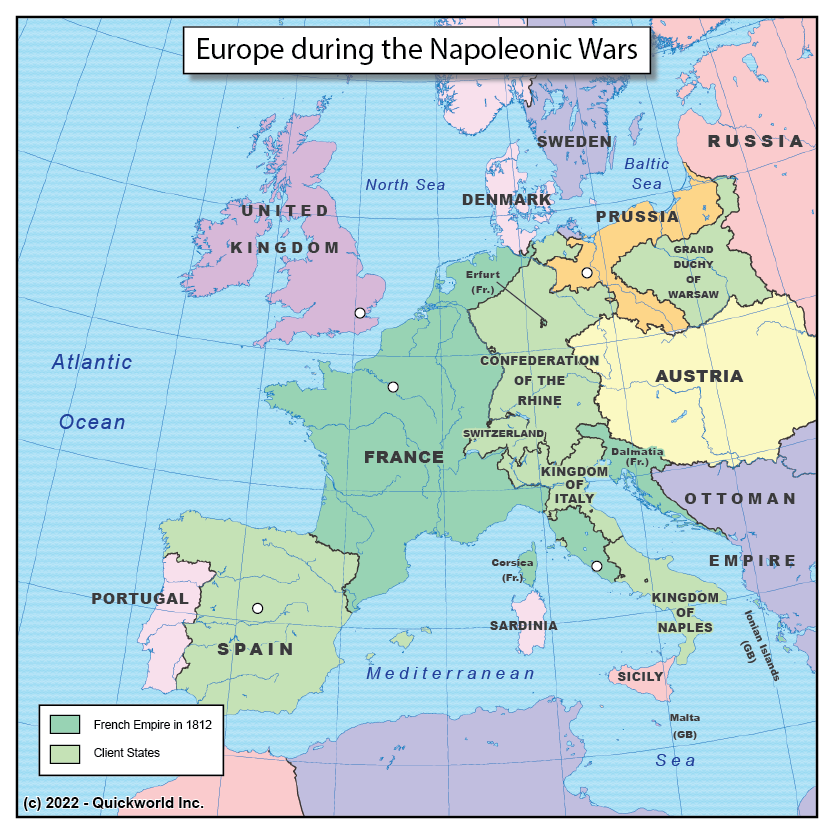Our Series on Historical Conflicts takes us to Europe in the times of Napoleon.
While Napoleon Bonaparte, the son of a Corsican aristocrat who was educated in French military schools and became a general in his twenties, was only emperor of France for ten years, his impact on that country and the rest of Europe was tremendous.
At the height of Napoleon's glory in 1812, France had annexed the low countries, much of Northern Italy, parts of Northwestern Germany, as well as Dalmatia. It also counted Spain, Poland, Switzerland, the rest of peninsular Italy and most German principalities as client states, effectively ruling half of Europe with an iron fist. The United Kingdom was his sworn enemy for all those years while Russia, Prussia and Austria alternated times of alliance with and against Napoleon's empire. Ultimately, after his country was exhausted by years of warfare, it took a coalition of all other major European powers to take the Emperor to his knees.
By 1815, France was reduced to its pre-Napoleonic borders, and the Emperor himself was exiled to the South Atlantic island of St. Helena, where he died in 1821.
The Napoleonic Wars


